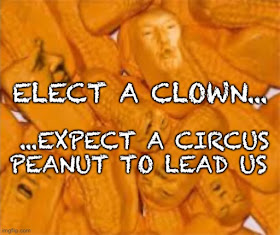In relation to the development of consciousness, it is broader than just attaining adequacy in basic survival skills, learning how to organize, or having an excellent memory.
True competence is more about growing in wisdom than accumulating mere knowledge.
It entails striving toward a psychological and spiritual maturity that results in real personal power.
Many people can cook without recipes or work on a car engine without a manual, or have brilliant memories that enable them to recall quick, formulaic ways of responding to situations.
But, because of an inability or unwillingness to think in broader ways or to handle different situations creatively, they may fail in dealing with situations that do not fit within expected patterns.
The man who could easily fix a garbage disposal without much help from a manual may feel totally incompetent when faced with handling more complex or detailed situations involving discipline or communication.
The reality is that even when people are competent in some aspects of their lives, their competence in other areas varies.
One of the main characters in the book A Bed by the Window, is very skilled and contentious in their work - so competent and well rounded as a care giver but, their personal life is another matter altogether. They are less competent in decision making about mates, and often finds them-self in compromising situations as a result of their poor judgement. Bottom line: was superb on the one hand but lousy on the other.
Individual is a glaring example of what psychologists refer to as someone with a combination of both "conflict-free areas of the ego" and extremely conflicted ones, someone who is fully conscious in certain areas but, because of neurotic conflict, utterly unconscious in others.
Once, when asked the purpose of psychotherapy, Freud commented, "To make the unconscious conscious." Therapy's purpose is to help people become more aware so that they can think more clearly and live their lives more effectively and efficiently.
Dysfunction Versus Civility.
All organizations are dysfunctional, but some are more dysfunctional than others.
Will 'We The People' finally recognize in this agency why an entire culture of paranoia exists that is rightfully so before it's too late?
"Dysfunctional" and "culture of paranoia" are abstract terms.
Trump on Coming Debt Crisis: ‘I Won’t Be Here’ When It Blows Up
Less abstract would be the facts concerning top-notch executives rendered totally impotent by the time of two other executives totally wasted on spying on him or her. The only result possible as numbers don't lie: several hundreds of thousands of more taxpayer dollars went down the drain. But more than that, the morale of the entire employee department was shambles and it's performance understandably poor as a result.
Think about how the actual cost to the general taxpayers, within any combined departments alone, costs us millions not had, now borrowed, no remorse?
The two morals to scenario. If, the most civil use of power is to give it away, then in this instance not only were those in the highest positions of power not giving it away, they were taking it away.
The scenario's first moral is that such incivility is not cost effective. To the contrary, it is viciously expensive and wasteful.
The other moral is that it is extremely difficult to change a culture.
Now we have arrived at another tenet of theory: leadership inherently resists change. Resists healing - in no uncertain terms.
The plain fact of the matter is that leadership despite the blatancy of their dysfunction and despite its cost-ineffectiveness, would rather remain dysfunctional than grow toward greater civility.
Bull's Eye: Trump Is His Own Worst Enemy.
Why is this so? Reflect on the complexity of the definition civility, namely, that it is "consciously motivated behavior that is ethical in submission to a higher power."
Civility does not come naturally. It takes consciousness and action to achieve. Incivility comes more naturally and because of laziness it is simply easier to be uncivil.
If that seems to be a pessimistic view, there is still room for optimism.
To be as civil as possible in these complex and demanding roles is the path of Smart selfishness, even though it requires it requires a great deal of psychoanalytical exertion.
Why bother, then, since incivility comes more easily than civility?
The answer to that question, as suggest in the book 'A World Waiting To Be Born', is that while incivility is easier, the creation of a relatively civil organization or culture in the Long Run More Cost-Effective.
It is also the Route to Creating something that is more Healing and Alive.
Think about that as you reflect upon: "Are You Better Off Than You Were Four Years Ago?"
OR
Educational book share: The Road Less Traveled and Beyond - Spiritual Growth in an age of Anxiety













No comments:
Post a Comment